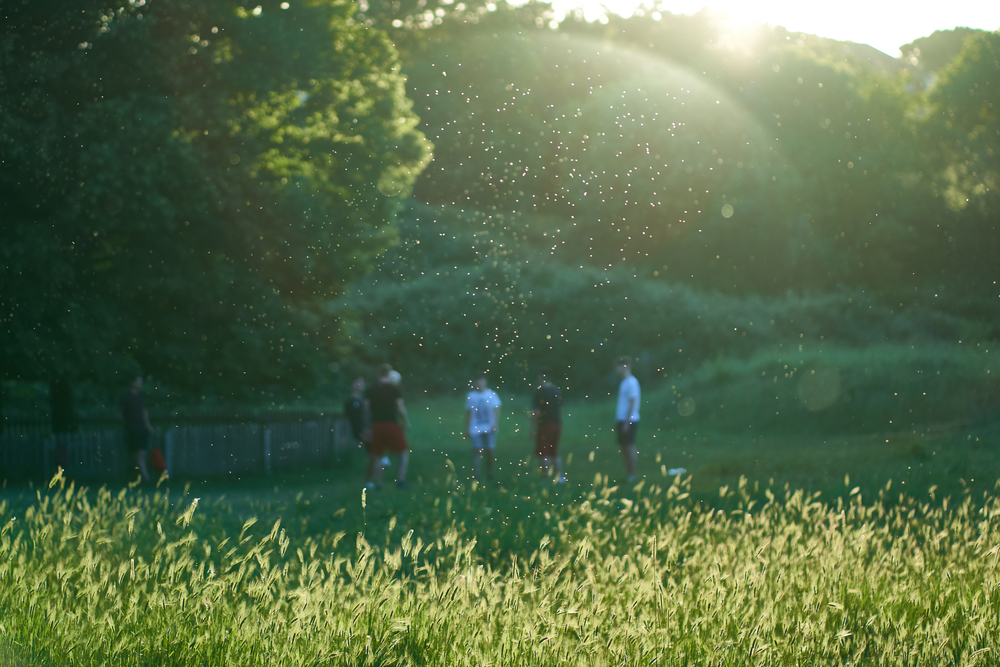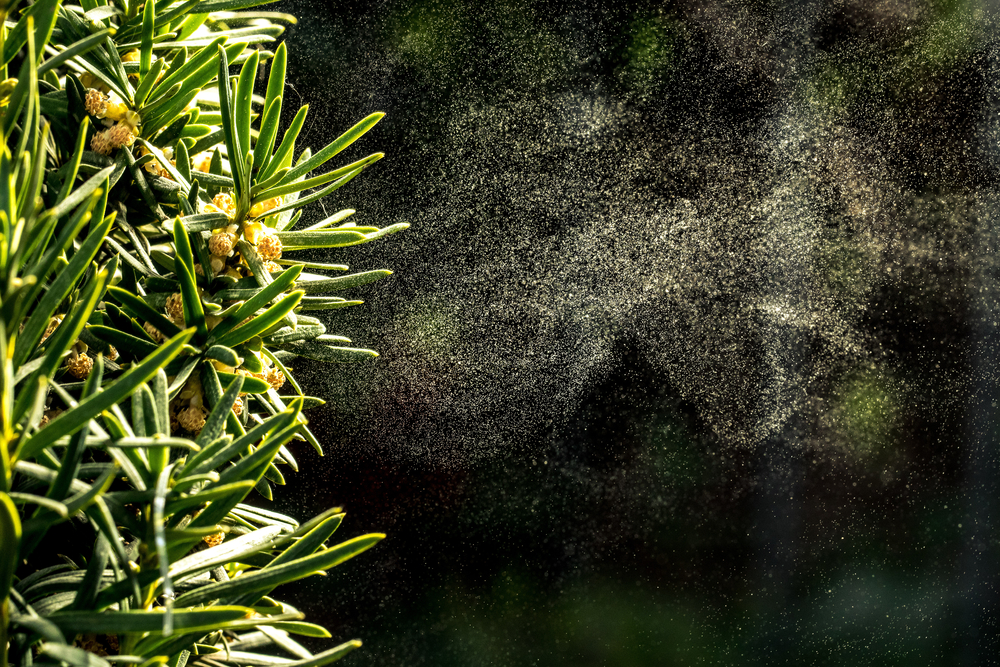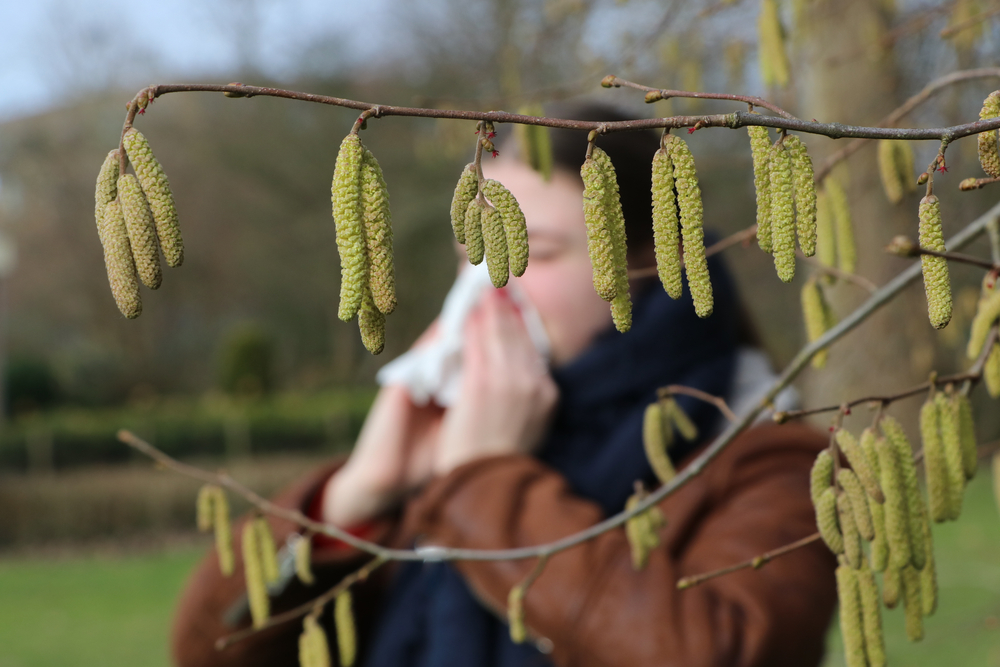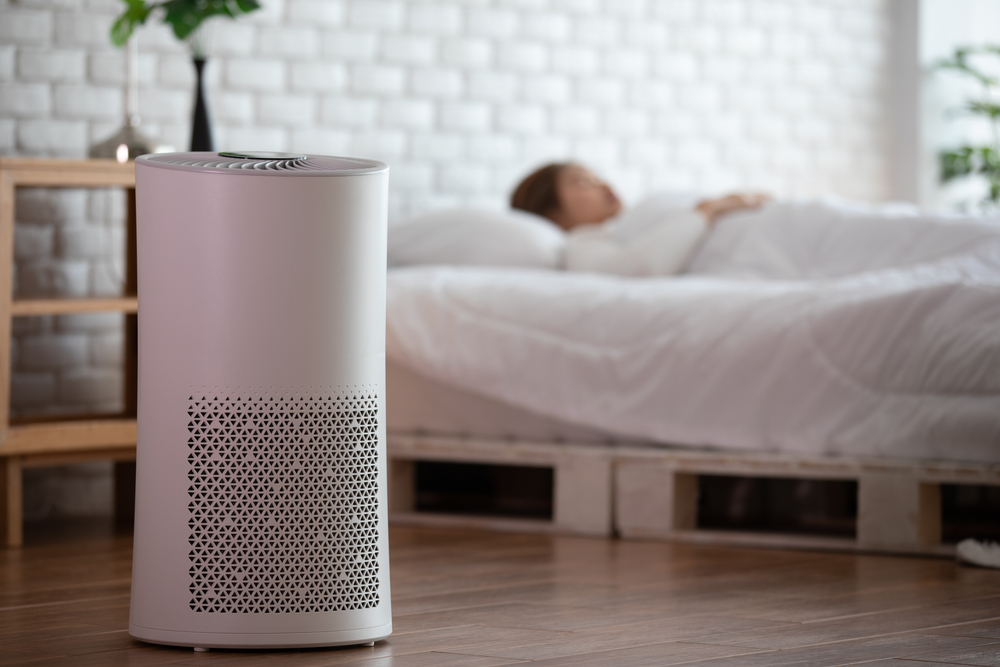
Pollen season in Florida can be challenging for many residents, especially those with allergies or respiratory issues. With high pollen counts and various types of pollen in the air, it’s crucial to improve indoor air quality (IAQ) during this time.
In this blog, we’ll discuss the most common types of pollen in Florida, the time of year when pollen levels are highest, and the potential health effects of exposure to pollen. By following these practical tips, you can reduce your exposure to pollen and improve your IAQ during Florida’s pollen season. Keep reading!
Understanding Florida’s Pollen Season

The pollen season in Florida typically begins in late winter. It lasts through spring, with peak pollen counts usually occurring in February and March. During this time, various trees, grasses, and weeds release pollen, which can become airborne and cause allergy symptoms in sensitive individuals.
Some of the most common types of pollen in Florida include:
- Oak Tree Pollen: Oak trees are abundant in Florida and produce large amounts of pollen during this season. They are the primary cause of tree pollen allergies in the state.
- Pine Tree Pollen: Pine trees also release significant amounts of pollen, contributing to the overall pollen count in the area.
- Grass Pollen: Bermuda and Bahia grasses are prevalent in Florida and can cause grass pollen allergies, particularly during the late spring and early summer months.
- Ragweed Pollen: Ragweed pollen is a common allergen that can cause allergic reactions in sensitive individuals during the late summer and early fall months.
Exposure to pollen can lead to a range of health effects, including sneezing, runny or stuffy nose, itchy or watery eyes, and worsening asthma symptoms. By improving your indoor air quality during Florida’s pollen season, you can minimize these health effects and enjoy a more comfortable living environment.

Practical Tips to Improve IAQ During Florida’s Pollen Season

- Keep windows and doors closed: One of the easiest ways to reduce your exposure to pollen during the pollen season is to keep windows and doors closed. This prevents pollen from entering your home and worsening your IAQ. Consider using air conditioning to maintain a comfortable temperature indoors, as it helps to filter the air and remove pollen particles.
- Use air purifiers with HEPA filters: High-efficiency particulate air (HEPA) filters can effectively capture and remove pollen particles from indoor air. Place air purifiers with HEPA filters in key areas of your home, such as bedrooms and living spaces, to improve IAQ during the pollen season.
- Change air filters regularly: Regularly changing your HVAC system’s air filters can help maintain optimal IAQ during Florida’s pollen season. Aim to replace your filters at least every three months or more frequently if you have allergies or asthma.
- Clean your home frequently: Vacuuming, dusting, and regularly wiping down surfaces can help to remove pollen particles from your home, improving your IAQ during the pollen season. Use a vacuum cleaner with a HEPA filter to ensure the most effective pollen removal.
- Limit outdoor activities during peak pollen times: Pollen counts are typically highest during the early morning and late afternoon hours. If you have pollen allergies, try to limit your outdoor activities during these times to reduce your exposure to pollen.
- Wash clothes and bedding regularly: Pollen particles can cling to clothes, bedding, and other fabrics. Washing these items frequently can help reduce pollen in your home and improve your IAQ during Florida’s pollen season.
- Shower and change clothes after being outdoors: After spending time outside during pollen season, pollen particles can collect on your hair, skin, and clothing. Showering and changing into clean clothes outdoors can help minimize the pollen you bring into your home, ultimately improving your IAQ during Florida’s pollen season.
- Use a dehumidifier: High humidity levels can exacerbate allergy symptoms and make it easier for pollen particles to stick to surfaces. Using a dehumidifier to maintain an indoor humidity level of around 30-50% can help improve your IAQ and make your home more comfortable during the pollen season.
- Seal cracks and gaps in your home: Ensuring your home is properly sealed can help to prevent pollen particles from entering through cracks and holes. Check for any openings around windows, doors, and vents. Seal them with weatherstripping or caulking to improve your IAQ during Florida’s pollen season.
- Keep pets clean and groomed: Pets can carry pollen particles on their fur, which can then be transferred into your home. Regularly bathing and grooming your pets can help to minimize the amount of pollen they bring indoors, further improving your IAQ during the pollen season.
Allergens Testing Services To Improve Indoor Air Quality

Understanding the allergens and particulates in your indoor environment can be crucial for managing allergy symptoms and improving IAQ during Florida’s pollen season. Environmental Testing Agency (ETA) offers comprehensive allergen testing services that can provide you with the information you need to make informed decisions about your living space.
Our allergen services include:
- Identifying contaminants: ETA can help you identify potential allergens or particulates circulating in your indoor air, such as pollen, pet dander, mold spores, and dust mites.
- Accurate breakdown: We use state-of-the-art testing methods and equipment to provide a detailed analysis of the allergens in your indoor environment, allowing you to take targeted action to improve your IAQ.
- Expert recommendations: Our experienced professionals can offer tailored advice on mitigating the allergens identified in your home or office, helping you create a more comfortable and healthier space during Florida’s pollen season.
Whether you’re seeking peace of mind or a better understanding of the contaminants affecting your indoor air quality, ETA is here to help. Our allergen testing services can be a valuable tool in your efforts to minimize allergy symptoms and improve your overall well-being during the pollen season. Contact us today to learn more about our services and how we can assist you in creating a healthier indoor environment.
Conclusion
Dealing with pollen season in Florida can be challenging, but taking proactive steps to improve indoor air quality can make a significant difference in your comfort and health. By implementing the tips outlined in this blog, you can reduce your exposure to pollen, minimize allergy symptoms, and maintain a healthier living environment during Florida’s pollen season.



Good post. I learn something new and challenging on blogs I stumbleupon on a daily basis. Its always exciting to read content from other authors and use a little something from other web sites.